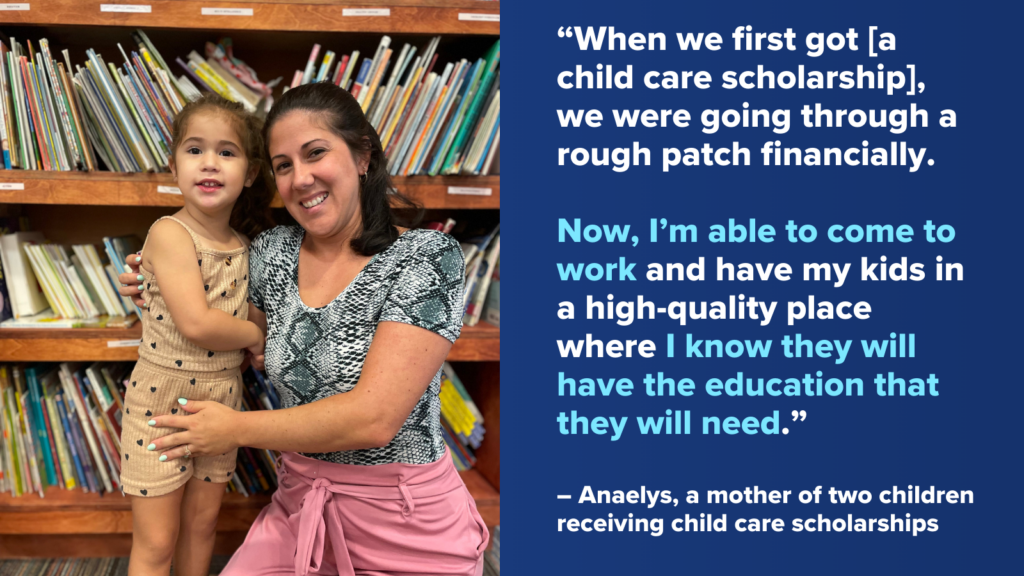
Updated September 2024
Across the country, child care is becoming a top bipartisan priority for state legislatures and governors. Lawmakers from both parties are increasingly taking action to ensure that high-quality child care is available so that parents can go to work and their children can receive enriching early learning experiences. Policymakers have recognized the importance of brain development from birth to age five, whether children are supported at home or in high-quality child care programs. Children in effective settings are put on a better path to school readiness compared to young children who are in lower-quality care or stuck in front of a TV all day while their parents work. However, despite this bipartisan consensus, Texas child care programs are struggling due to a lack of funding, and working families are paying the price.
This policy brief outlines three promising strategies in Republican-led states including Florida, Alabama, Kentucky, and others that recently made significant investments to address the child care crisis:
- Strategy One: Serve more families in the state’s child care assistance program and address the waitlist
- Strategy Two: Stabilize programs’ costs and increase reimbursement rates
- Strategy Three: Address the child care workforce shortage by providing care to the children of child care educators
As Texas considers the next steps for child care policy, lawmakers and stakeholders should consider the promising examples set by other Republican-led states.




